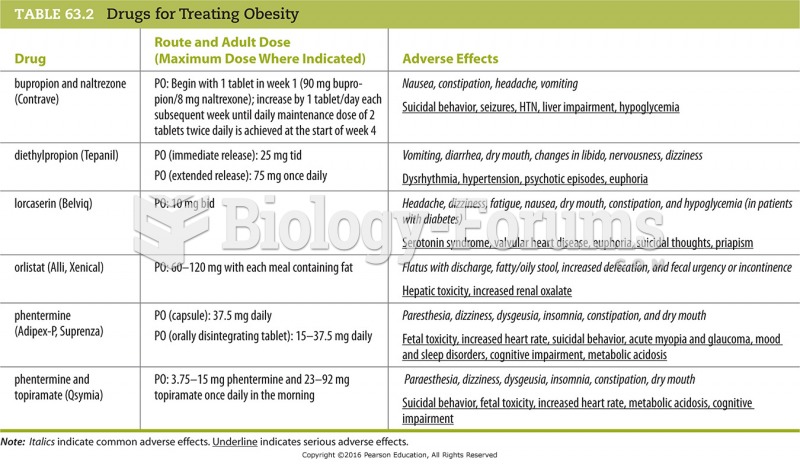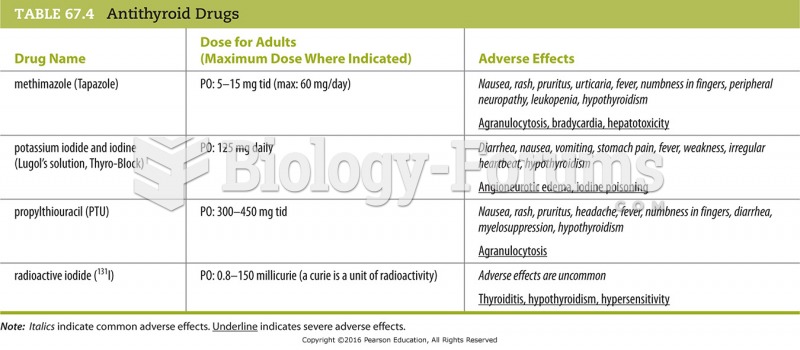Answer to Question 1
Correct Answer: 2
Rationale 1: Inhaled corticosteroids decrease inflammation and do not affect the sympathetic nervous system.
Rationale 2: Oral beta-adrenergic agonists activate the sympathetic nervous system and must be used cautiously in clients with hypertension.
Rationale 3: Inhaled anticholinergic drugs have few systemic side effects; hypertension is not one of them.
Rationale 4: Mast cell stabilizers decrease inflammation. They are safe for use in clients with hypertension.
Global Rationale: Because albuterol may exhibit cardiovascular effects in some patients, caution is required when administering these agents to persons with a history of tachyarrhythmias, prolongation of the QT interval, coronary artery disease, or hypertension (HTN). Inhaled corticosteroids decrease inflammation and do not affect the sympathetic nervous system. Inhaled anticholinergic drugs have few systemic side effects; hypertension is not one of them. Mast cell stabilizers decrease inflammation. They are safe for use in clients with hypertension.
Answer to Question 2
Correct Answer: 3
Rationale 1: Warfarin (Coumadin) may significantly increase PT.
Rationale 2: BUN and creatinine are not affected.
Rationale 3: Warfarin (Coumadin) may significantly elevate the PT so that less warfarin (Coumadin) is needed.
Rationale 4: The effects of warfarin (Coumadin) effects would be potentiated. This will elevate the PT so that less Coumadin is needed. This lowers the risk of stroke.
Global Rationale: Zafirlukast is metabolized by CYP450 enzymes and has the potential to interact with substrates of the inhibitors of this enzyme. Use with warfarin may significantly increase prothrombin time (PT). BUN and creatinine are not affected. The increased effect of warfarin lowers risk of stroke.







